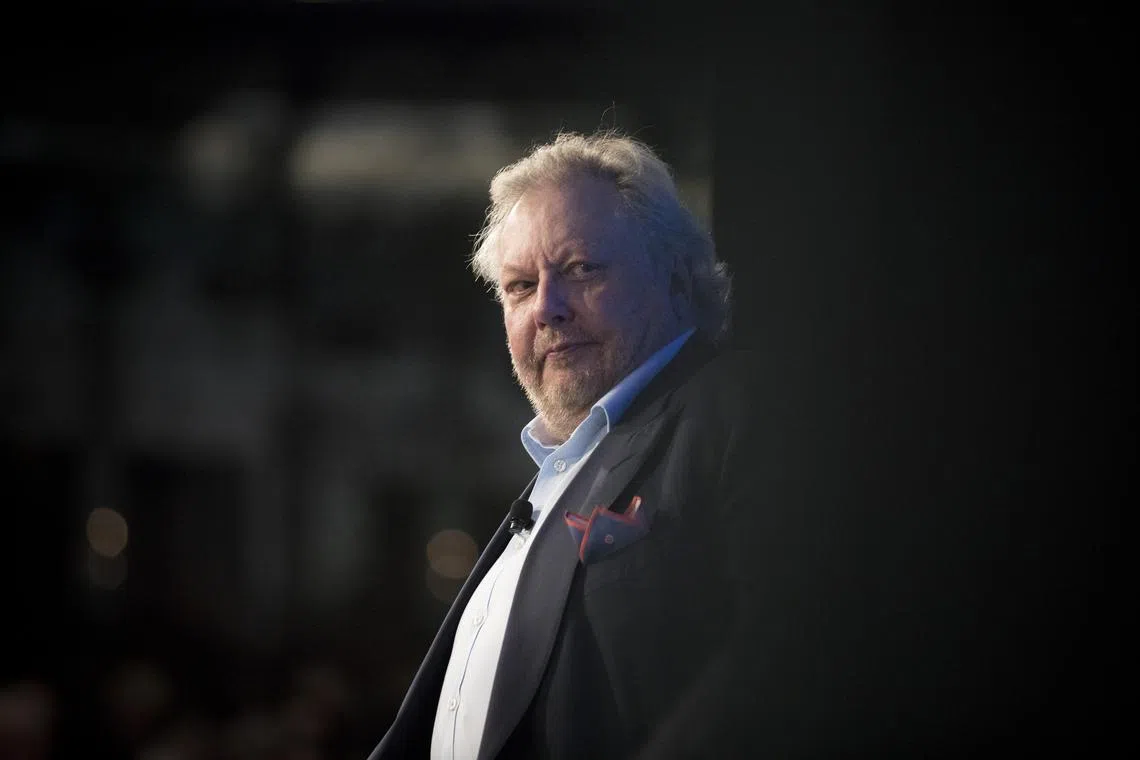Billionaire sex saga is just the latest scandal to rock Australia’s CEOs
Sign up now: Get ST's newsletters delivered to your inbox

WiseTech Global CEO Richard White will step down after damaging allegations over his relationships with several women wiped more than A$7 billion (S$6.1 billion) from the company's market value.
PHOTO: BLOOMBERG
Follow topic:
SYDNEY – The alleged sex-for-investment scandal that embroiled Australian tech billionaire Richard White is just the latest corporate calamity in a country fast losing its reputation as a tightly regulated market with strict governance standards.
On Oct 24, WiseTech Global announced that Mr White – its co-founder, chief executive officer and also its largest shareholder – will step down after a series of damaging allegations over his relationships with several women wiped more than A$7 billion (S$6.1 billion) from the freight software giant’s market value.
Media reports this week had said Mr White paid millions of dollars to a former sexual partner to settle allegations of inappropriate behaviour.
In a matter of months, accusations of operational or ethical failures have also hit Australia’s two dominant supermarkets, one of the major banks, the largest insurer, the biggest listed media company and Sydney’s main casino. In a country with one of the planet’s biggest pension pools, where worker contributions are mandatory, everyday savers are picking up the tab when stock prices decline.
Another tycoon founder, Mineral Resources’ Chris Ellison, also this week found himself embroiled in scandal, with the company investigating past undeclared payments that helped him avoid tax. Australia’s corporate watchdog has launched a probe, and almost A$2 billion has been slashed from the miner’s market value since Oct 21.
The mining magnate described his actions in a statement on Oct 21 as “a poor decision and a serious lapse of judgment”. He had subsequently “voluntarily” disclosed the matters to the Australian Taxation Office in full, with all outstanding tax, penalties and interest repaid. The company’s board said earlier this week it retained confidence in Mr Ellison.
While executive or corporate transgressions are a worldwide phenomenon, this issue seems to be particularly pronounced in Australia, where a confluence of factors comes into play. Many of the country’s largest industries – aviation, banking, groceries and retailing – are duopolies or oligopolies, comfortable environments that can be conducive to market-power abuse.
Australia is home to only 27 million people and has a relatively small pool of independent board directors to oversee listed companies. Many directors have roles at multiple businesses. Advocacy groups have long said board members are reluctant to speak out when standards lapse at one company for fear of losing a board position at another firm.
That is not the only problem. Some of the country’s watchdogs are either short of resources, have few corporate scalps to their name, or dish out fines that do little to deter bad behaviour. Star Entertainment Group was in October fined just A$15 million – less than 1 per cent of revenue – by its regulator after an inquiry found the casino operator had breached its licence several times and was unfit to run its flagship Sydney complex, despite having had two years to address its problems.
The head of a Senate inquiry into the Australian Securities and Investments Commission, the country’s primary corporate regulator, in July described the agency as “an organisation without transparency, few prosecutions and a litany of cultural, structural and governance issues”.
One of the most damning assessments of an Australian workplace came only last week when Nine Entertainment, publisher of the Sydney Morning Herald and the AFR, released an independent review of its own practices. The report uncovered systemic abuses of power and authority, bullying, discrimination and sexual harassment.
At too many businesses, internal governance measures are not detecting problems before they develop into major public scandals, said Dr Rahat Munir, a professor at Macquarie University’s business school who leads the department of accounting and corporate governance. Australia’s geographical remoteness, far from the world’s major financial and corporate hubs, means its companies risk operating in their own bubble, he said.
“As a result, it’s very, very easy to manipulate the local market,” he said. BLOOMBERG

